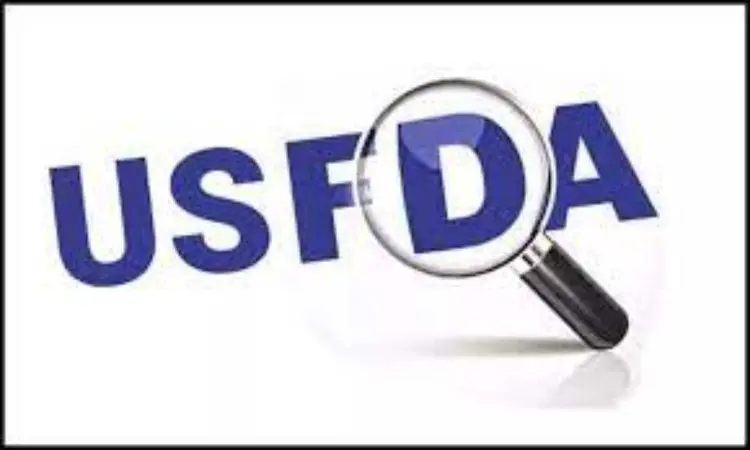- Home
- Medical news & Guidelines
- Anesthesiology
- Cardiology and CTVS
- Critical Care
- Dentistry
- Dermatology
- Diabetes and Endocrinology
- ENT
- Gastroenterology
- Medicine
- Nephrology
- Neurology
- Obstretics-Gynaecology
- Oncology
- Ophthalmology
- Orthopaedics
- Pediatrics-Neonatology
- Psychiatry
- Pulmonology
- Radiology
- Surgery
- Urology
- Laboratory Medicine
- Diet
- Nursing
- Paramedical
- Physiotherapy
- Health news
- Fact Check
- Bone Health Fact Check
- Brain Health Fact Check
- Cancer Related Fact Check
- Child Care Fact Check
- Dental and oral health fact check
- Diabetes and metabolic health fact check
- Diet and Nutrition Fact Check
- Eye and ENT Care Fact Check
- Fitness fact check
- Gut health fact check
- Heart health fact check
- Kidney health fact check
- Medical education fact check
- Men's health fact check
- Respiratory fact check
- Skin and hair care fact check
- Vaccine and Immunization fact check
- Women's health fact check
- AYUSH
- State News
- Andaman and Nicobar Islands
- Andhra Pradesh
- Arunachal Pradesh
- Assam
- Bihar
- Chandigarh
- Chattisgarh
- Dadra and Nagar Haveli
- Daman and Diu
- Delhi
- Goa
- Gujarat
- Haryana
- Himachal Pradesh
- Jammu & Kashmir
- Jharkhand
- Karnataka
- Kerala
- Ladakh
- Lakshadweep
- Madhya Pradesh
- Maharashtra
- Manipur
- Meghalaya
- Mizoram
- Nagaland
- Odisha
- Puducherry
- Punjab
- Rajasthan
- Sikkim
- Tamil Nadu
- Telangana
- Tripura
- Uttar Pradesh
- Uttrakhand
- West Bengal
- Medical Education
- Industry
Merck application for Keytruda plus Padcev for Urothelial Cancer gets USFDA priority review

Rahway: Merck, known as MSD outside of the United States and Canada, has announced that the U.S. Food and Drug Administration (FDA) has accepted for priority review a new supplemental Biologics License Application (sBLA) seeking approval for KEYTRUDA, Merck’s anti-PD-1 therapy, in combination with Padcev (enfortumab vedotin-ejfv), an antibody-drug conjugate, for the treatment of adult patients with locally advanced or metastatic urothelial carcinoma (la/mUC). This application is being reviewed under the FDA’s Real-Time Oncology Review (RTOR) program, which aims to improve the efficiency of the review process of applications to ensure that treatments are available to patients as early as possible. The FDA has set a Prescription Drug User Fee Act (PDUFA), or target action, date of May 9, 2024.
The sBLA is based on data from the Phase 3 KEYNOTE-A39 trial (also known as EV-302), which was conducted in a research collaboration with Seagen and Astellas, in which KEYTRUDA plus enfortumab vedotin demonstrated a statistically significant and clinically meaningful improvement in overall survival (OS) and progression-free survival (PFS) compared to chemotherapy (gemcitabine plus cisplatin or carboplatin). These results were presented at the European Society for Medical Oncology Congress 2023 as late-breaking data during a Presidential Symposium session and showed KEYTRUDA plus enfortumab vedotin significantly improved OS, reducing the risk of death by 53% compared to chemotherapy (median OS, 31.5 months vs. 16.1 months, respectively), an improvement in median OS of more than 15 months; (HR=0.47 [95% CI, 0.38-0.58]; p<0.00001).
KEYTRUDA plus enfortumab vedotin also achieved a significant improvement in progression-free survival (PFS), reducing the risk of disease progression or death by 55% (median PFS, 12.5 months vs. 6.3 months, respectively); (HR=0.45 [95% CI, 0.38-0.54]; p<0.00001). Results were consistent across all pre-defined subgroups, including patients who may or may not be eligible for treatment with cisplatin-based chemotherapy as well as patients whose tumors expressed both high (Combined Positive Score [CPS] ≥10) or low (CPS <10) levels of PD-L1, and patients with or without liver metastases.
“The FDA’s acceptance of this application for priority review, as well as under the RTOR program, underscores the urgency to bring this treatment option that has demonstrated an OS benefit over chemotherapy to more patients with locally advanced or metastatic urothelial carcinoma,” said Dr. Eliav Barr, senior vice president and head of global clinical development, chief medical officer, Merck Research Laboratories. “We look forward to working closely with the FDA to provide this important option to patients as quickly as possible.”
The KEYNOTE-A39 trial is intended to serve as the basis for global regulatory submissions for the treatment of adult patients with la/mUC and as the confirmatory trial for the current U.S. accelerated approval of KEYTRUDA plus enfortumab vedotin for adult patients with la/mUC who are not eligible to receive cisplatin-containing chemotherapy. The accelerated approval is based on data from the KEYNOTE-869 trial (also known as EV-103) dose escalation cohort, Cohort A and Cohort K.
Merck, in collaboration with Seagen and Astellas, are evaluating this combination as part of an extensive clinical development program in multiple stages of urothelial cancer, including two Phase 3 clinical trials in muscle-invasive bladder cancer in KEYNOTE-B15 (NCT04700124, also known as EV-304) and KEYNOTE-905 (NCT03924895, also known as EV-303).
Ruchika Sharma joined Medical Dialogue as an Correspondent for the Business Section in 2019. She covers all the updates in the Pharmaceutical field, Policy, Insurance, Business Healthcare, Medical News, Health News, Pharma News, Healthcare and Investment. She has completed her B.Com from Delhi University and then pursued postgraduation in M.Com. She can be contacted at editorial@medicaldialogues.in Contact no. 011-43720751


